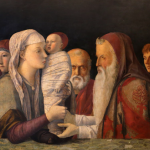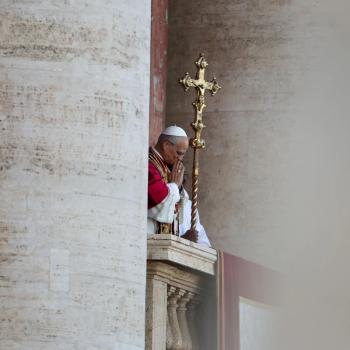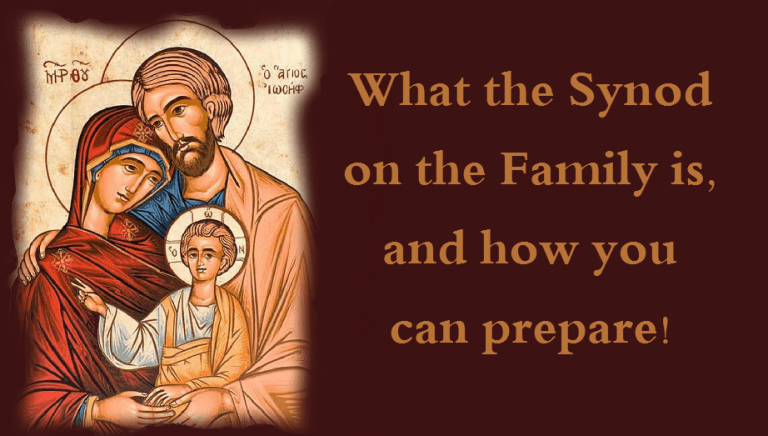Recently, I had the privilege to sit down with Marcus Peter to discuss what the new papacy means for the future of the Church. Our conversation highlighted Pope Leo XIV as a pontiff who is calling us to refocus on the centrality of Christ in the life of every Christian—including the Pope himself. Here are a few reflections I had following the conversation – which you can listen to here:
From his very first homily, Pope Leo XIV has challenged the faithful to return to the kerygma—the core proclamation of the Gospel. In a world that often fragments faith into ideological debates, personal preferences, and political affiliations, his message is a stark reminder that the heart of Christianity is Christ Himself. He is not simply a historical figure or an inspirational teacher. He is the living Son of God, calling each person into a transformative relationship.
This discussion between Marcus and me was deeply rooted in Pope Leo XIV’s emphasis that the papacy, at its core, is about pointing toward Christ rather than the personality or personal background of the man who assumes the role. Just as Peter’s position in the Church was confirmed by his confession of Christ’s identity, so too does Pope Leo XIV remind us that our faith should be grounded not in human leaders but in the Savior they serve.
A Call to Discipleship
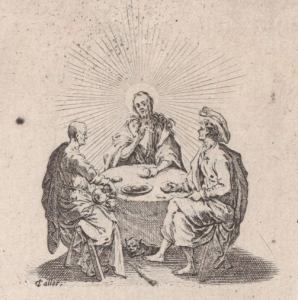
One of the most striking elements of our discussion was the recognition that the papacy is not about individual ambition or political maneuvering; it is a sacred office designed to keep the Church focused on the truth revealed by Christ. Pope Leo XIV’s homily set the tone for his leadership, grounding his papacy in a vision of humble service, an adherence to orthodoxy, and a return to the fundamentals of faith.
This shift is critical, especially at a time when many people—even within the Church—can become distracted by external concerns. Political controversies, cultural debates, and personal preferences can cloud the essential message of Christianity: that every person is called to surrender completely to Christ. Pope Leo XIV has reiterated that discipleship is not a mere intellectual exercise or cultural identifier; it is an all-consuming transformation that should be reflected in every aspect of a believer’s life.
Our lives should become so intertwined with the life of Christ that our own personal ambitions, fears, and worldly attachments pale in comparison to His presence. The Pope himself is no exception to this calling. Pope Leo XIV reminds us that the office exists not to elevate the person but to unify the Church in its mission to proclaim the Gospel to the world.
The Papacy as a Transformative Vocation

Another powerful reflection from our conversation centered on the idea that stepping into the papal office is a transformation akin to a deep vocational calling. As Marcus observed, Robert Prevost is not simply Robert Prevost anymore—he is Pope Leo XIV, taking on a distinct role within the Church that requires him to be something far greater than himself.
Throughout history, we have seen how this transformation occurs. Simon became Peter, Ratzinger became Benedict, Wojtyla became John Paul II. The name change is not simply symbolic—it reflects a reality that when someone enters this sacred office, they do so in response to a divine call that surpasses personal identity.
This reality mirrors the transformation that each Christian undergoes in their own vocational journey. It made me think of my own journey as a husband and father. These roles have shaped my very identity, making him into someone fundamentally different from who I was before. Just as parenthood and marriage transform a person, the papacy is not just an administrative duty—it is a new way of living and being that profoundly shapes the person in the office.
This perspective is crucial in our approach to Pope Leo XIV. If we merely see him as a continuation of Robert Prevost, we risk missing the significance of what he now represents. His life has been elevated into something greater—not for personal glory, but for the benefit of the Church. His task is to shepherd the faithful, guiding them always toward Christ.
The Church as a Sign of Hope in a Divided World
Our conversation also delved into the remarkable consistency of the Church throughout history. Despite human frailty, despite moments of weakness or scandal, the Church remains a beacon of unity, faithfully proclaiming the Gospel across centuries.
Marcus and I discussed the historic endurance of the papacy, even in moments of crisis. There have been times when some popes failed in virtue or leadership—figures like John XII and others who did not live up to the moral call of their office. Yet even in these moments, the magisterial teaching of the Church remained steadfast. The Holy Spirit, the guardian of truth, ensured that the Church never strayed into doctrinal error.
This is a tremendous source of hope. The Church, though embodied by flawed humans, is guided by divine wisdom. Pope Leo XIV has reaffirmed this truth in his call to reorient our faith around Christ rather than any individual figure, personality, or ideological movement.
The Lure or Practical Atheism – and the challenge of the Gospel
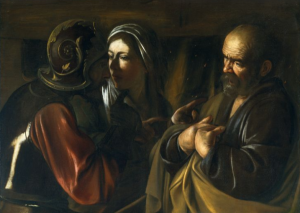
Caravaggio (1610)
At the heart of our discussion was the Pope’s exhortation to reject both outright denial of Christ and the more insidious form of practical atheism—the tendency to embrace Christianity superficially without allowing it to transform one’s life.
Many people say they believe in Christ, yet their lives remain unaffected by the radical demands of the Gospel. Pope Leo XIV, in his first homily, warned against this complacency. He called for an uncompromising commitment to spend oneself to the utmost for the mission of Christ.
This message resonates deeply. The Pope is reminding us that discipleship is not a passive label—it is an active, transformative way of life. It requires sacrifice, conviction, and an unwavering commitment to the truth that Jesus Christ is Lord.
A Church Built on Christ
As our conversation came to a close, Marcus and I shared a renewed sense of appreciation for the clarity and conviction Pope Leo XIV brings to his papacy. His vision is not about power or prestige—it is about rekindling the Church’s commitment to its foundational mission: proclaiming Christ to the world.
His emphasis on unity, humility, and transformation calls every Christian to reevaluate their own spiritual journey. Are we pointing toward Christ in everything we do? Are we truly spending ourselves for His kingdom? Are we allowing the reality of our faith to shape not just our words, but our actions?
These are the questions that Pope Leo XIV is placing before all of us. They are challenging, but they are necessary. And as Marcus and I reflected, it is through these questions that the Church continues to move forward in faith, never stagnant, always guided by the One who is its true center—Jesus Christ. I hope you have a chance to listen to the full conversation linked above and follow Marcus. He has been such an encouragement to me personally and his heart for the Gospel of Jesus is something that is needed so much in the world today.


